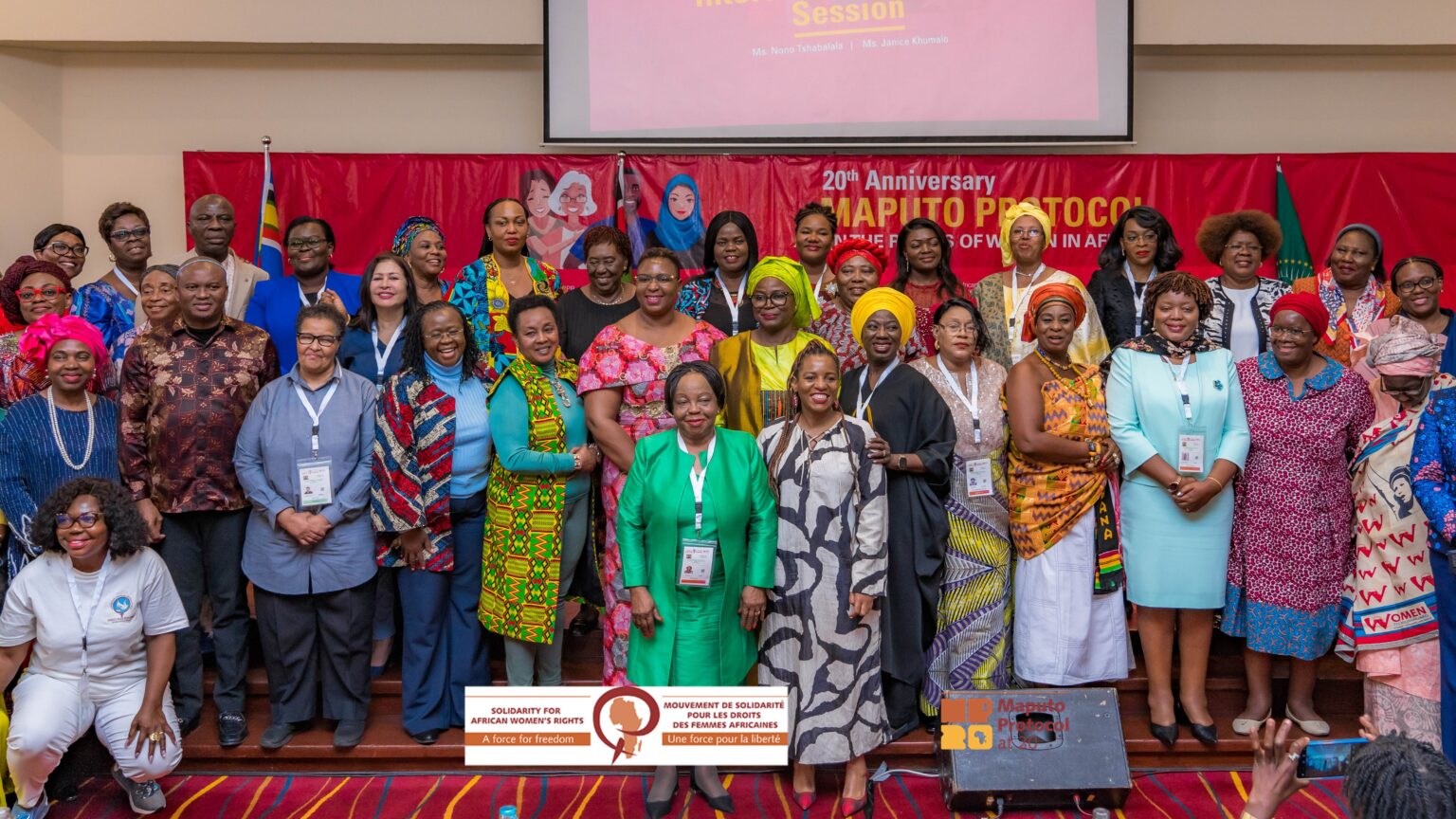- The Maputo Protocol was adopted by the African Union (AU) in July 2003.
- Already, 44 out of 55 Member States have ratified or acceded to it. Another eight countries have signed but were yet to accede to it as of June 2023.
- While progress has been made in a number of goals, some challenges loom large.
To mark the 20th Anniversary of the Maputo Protocol and to promote the continued adoption and implementation of its progressive provisions, the Solidarity for African Women’s Rights Coalition (SOAWR), Equality Now and Make Every Woman Count has released the 20 Years of the Maputo Protocol: Where are we now?
The report is a summary of the progress made in Africa towards the ratification, domestication, and implementation of the protocol. It highlights key achievements and challenges.
The Maputo Protocol holds immense importance as a legal instrument for the promotion and protection of women’s rights in Africa.
It addresses crucial issues affecting women’s lives by serving as a comprehensive legal framework. Maputo Protocol promotes women’s empowerment and participation, and establishes a system of accountability for African countries. All this fosters a culture of transparency and progress in the promotion of gender equality.
Eradication of vices against women
Maputo Protocol explicitly condemns harmful practices such as female genital mutilation. It helps tackle child marriage, and violence against women, calling on authorities to eradicate these practices.
By integrating the Protocol’s principles into their legal systems, member states ignite a culture of gender equality.
The Maputo Protocol was adopted by the African Union (AU) in July 2003. Since then, it has become one of the most ratified instruments in the AU. Already, 44 out of 55 Member States have ratified or acceded to it. Another eight countries have signed but were yet to accede to it as of June 2023.
While 80 per cent of AU Member States have ratified or acceded to the Protocol, the latest review says full implementation of the Protocol’s provisions is still a work in progress. A number of countries are submitting reservations, seeking to modify the legal effect of certain provisions.
Nonetheless, analysts agree that allowing reservations is better than countries not adopting the Protocol at all.
According to Rainatu Sow, Director of Make Every Woman Count, “the ratification of the Protocol is a crucial step towards achieving gender equality. Ratifying the Maputo Protocol sends a powerful message that states are committed to protecting and promoting women’s rights.”
Read also: Youth, women exclusion is stifling North African economies
Challenges in reporting
The report notes that only 19 states have submitted initial reports as required under Article 26(1) of the Protocol. However, these reports have suffered significant delays before their submission.
As part of the report launch, SOAWR members are calling for the need to enhance training of Member States on reporting. They also need strengthening of data collection and collation through cross-sector collaboration. Further, they seek improved clarity on reporting deadlines.
They also call for the African Commission (ACHPR) to consider increasing the reporting time frame.
Progress is notable but not equal
A review of the protocol 20 years later shows that progress is not evenly distributed. There are some areas in various countries that are showing better outcomes for women compared to others.
For instance, economic and social welfare rights have improved considerably in AU Member States. Currently, over half of African countries are enacting laws mandating equal remuneration for work of equal value. They are also providing paid maternity leave of 98 days or longer. Several countries prohibit discrimination based on gender and sexual harassment in the workplace.
Marriage rights
Legislation on rights related to marriage has been enacted in AU Member States. This is helping address issues such as the legal age of marriage. At the same time, the provision is increasing punishments for early, child, and forced marriages.
Institutional reforms, including the establishment of national committees and awareness campaigns, are contributing to the prohibition of child marriage in some countries.
Health and Healthcare
Twenty years since its adoption, almost all countries have maintained constitutional provisions related to health and healthcare. About six countries are enshrining rights related to reproductive healthcare. They are also rolling out legislative reforms integrated with laws and equality and gender-based violence supporting reproductive health rights.
Efforts to combat violence against women, including female genital mutilation (FGM), are informing constitutional reforms. A number of countries are also adopting national action plans, and establishing support services.
Women’s participation in political processes
Constitutional provisions establishing quotas on women’s representation in legislatures are in place across 10 countries. The report highlights that national gender or development strategies have integrated approaches to increase women’s participation in politics. An increasing number of countries are running campaigns to raise awareness and increase the representation of women.
The report also analyzes the state of protection of women and girls from violence in armed conflict. It notes that this call is receiving attention amongst AU countries, with constitutional and institutional reforms implemented in these contexts.
Challenges
While significant progress has been achieved over the past two decades, some challenges still remain. African governments are urged to prioritize eliminating harmful traditional practices, gender-based violence, and discrimination against women and girls.
Faiza Mohamed, Africa Regional Director at Equality Now, says, “Harmonizing national laws with the principles outlined in the Maputo Protocol and addressing deeply entrenched societal beliefs are crucial steps towards gender equality.”
“As everyone continues on the journey to uphold the rights of women and girls under the Maputo Protocol, the hope is that AU member states will embrace a multi-sectoral approach to fast-track the fulfillment of their obligations.”
